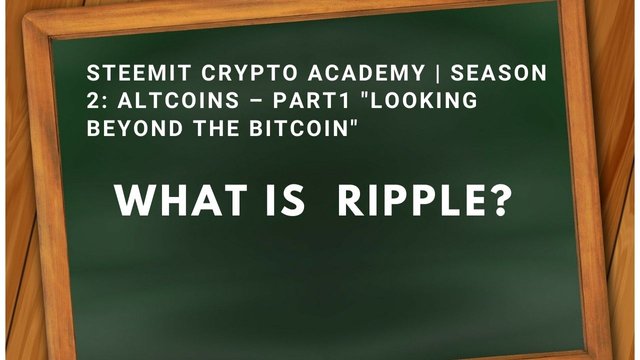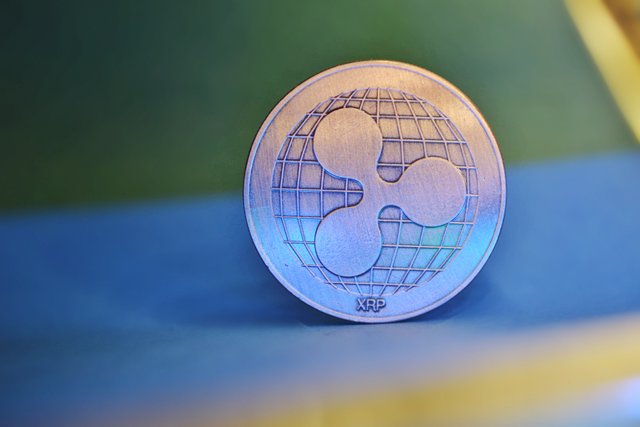
Background source:pixabay.com
.............................................................................................................
Introduction
When the world's first cryptocurrency, Bitcoin, was introduced in 2009, it wasn't long before other digital currencies followed suit. The new cryptocurrencies became known under the generic term "Altcoin". Altcoin means any cryptocurrency that is seen as an "alternative to Bitcoin".
By March 2021 there were almost 9,000 cryptocurrencies. One of the first altcoins to come out after Bitcoin's success was Namecoin, which was launched in April 2011. There are four main types of altcoins:
- Mining-based altcoins: Mining-based altcoins follow the same process as when mining for bitcoins. That includes solving problems to unlock blocks. Currently, Ethereum is the most popular mining-based altcoin.
- Stablecoins: Stablecoins were launched as a means of managing the volatility of Bitcoin. Stable coins aim to reduce this general volatility by tying their value to a shopping cart such as fiat currencies, precious metals or other cryptocurrencies. Libra is a stable coin developed by Facebook.
- Security tokens: Some altcoins are tied to certain companies and are introduced via an initial coin offer (ICO) under the classification of "security tokens". In essence, these are similar to traditional stocks that pay dividends to owners based on the number of tokens they own.
- Utility tokens: Utility tokens are used to provide services within a network. For example, they can be used to purchase services or redeem rewards. Unlike security tokens, utility tokens do not pay dividends or part with a share of ownership.

Source
What is Ripple (cryptocurrency)
The very first thing we should know is that Ripple is both a platform and a currency. The Ripple platform is an open source protocol that enables fast and inexpensive transactions. Unlike Bitcoin, Ripple will definitely rule all international transactions worldwide. The platform has its own currency (XRP), but anyone can use the platform to create their own via RippleNet. (is a network of institutional payment providers such as banks and money service providers that use solutions developed by Ripple to provide a smooth experience in transferring funds worldwide. In addition, the platform allows payments in any currency, including Bitcoin, and has a minimum internal transaction commission of 0,00001$, yes that's the correct number of zeros, the only reason it's not free to prevent DDos attacks.
What is XRP?
The Ripple Token (XRP) itself can also be used on the platform and is exchangeable with any currency or digital asset. However, the use of XRP is independent of the Ripple network. A party does not need XRP to transfer currencies. Hence, Ripple's value lies not in the XRP token, but in the network itself and its ability to move assets quickly around the world. The network acts as a competitor to existing payment systems such as Swift. It can enable a variety of transfers via RippleNet instead of acting as a replacement for existing payment methods or as a direct competitor to fiat currencies, as other cryptocurrencies like Bitcoin intend to do.
The idea of ripple was first considered in 2004, but it wasn't until 2013 that it gained more traction. Jed McCaleb (a noted programmer and entrepreneur and one of the co-founders of Ripple) invited a group of investors to invest in the network. Chris Larsen was one of those angel investors and is considered to be one of the richest people involved in cryptocurrencies.
Difference between ripple and bitcoin
There are several differences between Ripple and Bitcoin, including:
1:Technology: Bitcoin is based on blockchain technology whereas,Ripple uses its own technology known as RPCA (Ripple Protocol Consensus Algorithm). (The word "consensus" in the name means that there is no problem if every node is using it all others agree.
2:Mining: Miners are used to review bitcoin transactions and to issue new bitcoins onto the network. Instead of mining, Ripple uses a distributed consensus mechanism across a network of servers.
3:Transaction times: Ripple can process 1,500 transactions per second and scale up to 50,000 transactions per second, while, Bitcoin only has a transaction speed of three to six transactions per second.
4:supply: Bitcoin has a total stock of 21 million coins, while Ripple has 100 billion pre-made tokens.
What is Ripple used for:
1: Low commission exchange. There are many currencies that cannot be converted directly into one another. So banks have to use the US dollar as an intermediary. So there is a double commission: converting currency A into USD and USD into currency B. Ripple is also an intermediary, but much cheaper than USD.
2:Fast international transactions.
3: Payment ecosystem. The user can basically spend his own currency for quick and inexpensive transactions.
What are Ripple’s benefits?
1:Ripple was originally developed as a day to day payment system, so it's much more powersafe than Bitcoin. As a result, the transactions are much faster and cheaper.
2:Ripple started as an official organization as the main focus is on bank usage. So it is not the subject of multiple regulatory reviews like many other cryptocurrencies.
3: Ripple can be exchanged for any currency or value (like gold) with a uniform minimum commission.
Advantages and Disadvantages of ripple:
Advantages:
1: As highlighted above, Ripple is an official organization trusted by many banks -
2: No inflation. All tokens are first mined and are already available.
3:The more banks use it as a transaction platform, the higher the value of XRP.
Disadvantage:
1:It's highly centralized. The whole idea of cryptocurrency is to avoid centralization. Since the tokens have already been mined, the Ripple developers can decide when and how much to publish or not. So it's basically like investing in a bank.
2: In addition to centralization, it's pretty much a monopoly today as Ripple Labs owns 61 percent of the coins.
3: It's open source - very smart, but once the code is available there is a good chance a lot of people will try to hack it. Some of them might even succeed.
Conclusion:
Unlike Bitcoin, Ripple is definitely going to rule all the international transactions worldwide. Ripple is originally designed as a day to day payment system As the results, the transactions are much quicker and cheaper.As its main focus is to be used by banks So, it is not a subject of multiple regulation checks as many other cryptocurrencies The more banks use it as their transaction platform, the higher the value of XRP.
But as It is highly centralized unlike other cryptocurrencies So, it is basically like investing in a bank.moreever its open source there is a good chance many people will try to hack it.So it can be used for Low commission currency exchange and Fast international transactions.
Thanks for your support:
@yohan2on
@steemcurator01
@steemitblog
@steemcurator02
Plagiarised Content
Content Source
Original
Content Source
Downvoting a post can decrease pending rewards and make it less visible. Common reasons:
Submit
Downvoting a post can decrease pending rewards and make it less visible. Common reasons:
Submit
First of All, You are not eligible for the crypto academy as your repo is under 45 and secondly, you did the same as you did in your last post right?
https://steemit.com/hive-148441/@zalmaijan/crypto-morning-news-arpil-22th
While @pocoloco01 caught plagiarised content in your post,
You might be too clever that you removed that part but bro you are a plagiarist...!
Have a Nice Day...!
Downvoting a post can decrease pending rewards and make it less visible. Common reasons:
Submit